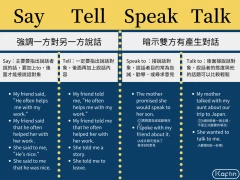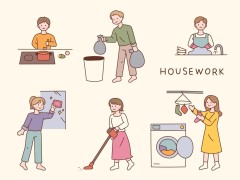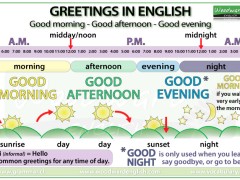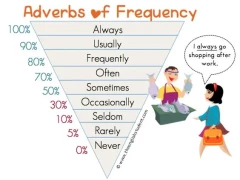live [liv] v. 住,生活
【派】living 生计
【扩】life 生活 alive 活着的
【搭】live on...靠……生活
* * *
A: Who lives with you?
B: Kate and Nancy do.
A:你和谁住在一起?
B:我跟凯特和南希一起住。
* * *
stay [stei] v. 停留
【扩】stop over 中途停留
【搭】stay at home 待在家
stay still 静止不动
stay out of 不参与 stay up 熬夜
* * *
A: How long do you plan to stay here?
B: I will stay here for about ten days.
A:你打算在这儿停留多久?
B:我将在这儿待大概10天。
* * *
home [həum] n. 家;adv. 在家,到家
【派】homeland 祖国
【搭】at home 在家 go home 回家
* * *
A: I must go back home where many things are waiting for me to settle.
B: We're very sorry to see you go.
A:我必须回国了,许多事正等着我去处理。
B:您要走了,我们感到非常遗憾。
* * *
housework [ˈhauswəːk] n. 家务
【构】house(房子)+work(工作)=housework(家务)
【搭】do the housework 做家务
* * *
A: My mother always says I spend too much time on watching TV.
B: Then you should finish your homework, and then help your parents with the housework some day.
A:我妈妈总是说我把太多的时间花费在看电视上。
B:那你以后应该先完成家庭作业,然后帮父母做些家务。
* * *
lunch [lʌntʃ] n. 午饭
【扩】breakfast 早餐 dinner 晚饭
【搭】have lunch 吃午饭
* * *
A: I'm wondering if I might have next Monday off.
B: Can you go just after lunch?
A:我想知道我能否下周一请一天假。
B:你午饭后走行吗?
* * *
afternoon [ˌɑːftəˈnuːn] n. 下午
【构】after(在……之后)+noon(正午)=afternoon(下午)
【搭】in the afternoon 下午
* * *
A: I want to do some shopping this afternoon.
B: Can I go with you? I know next to nothing about it in the States now.
A:我想今天下午去购物。
B:我能跟你一起去吗?我现在对在美国购物基本还一无所知。
* * *
usually [ˈjuːʒuəli] adv. 通常
* * *
A: I usually go to work on foot.
B: How many minutes does it take?
A:我经常步行去上班。
B:那你要走几分钟?
* * *
together [təˈɡeðə] adv. 一起
【派】altogether 完全地
【搭】get together 相聚
all together 一起
* * *
A: Your roommate is so nice.
B: Yes, we get along together very well.
A:你的室友真是太好了。
B:是的,我们相处得很融洽。
* * *
evening [ˈiːvniŋ] n. 晚上
* * *
A: When shall we have a tutorial?
B: How about tomorrow evening?
A:我们什么时候能有一节辅导课?
B:明天晚上怎么样?
* * *
arrive [əˈraiv] v. 到达
【派】arrival 到达
【扩】reach 到达 get to 到达
【搭】arrive at 到达 arrive in 到达
* * *
A: I think I'll be the first to arrive on Saturday.
B: Great! You can help me then.
A:我想周六我会第一个到。
B:太好了,到时候你可以帮帮我。
* * *
night [nait] n. 夜间
verb [vi. 不及物动词]/ lɪv / 生存,活着;生活在;居住;生长,栖息;(以某种方式)生活,过日子;为…而生活;以…为生;继续存在,铭记;过精彩的生活,享受生活;<非正式>(物)搁置在(某处);恪守(规则、信念、理想等);<古>(船)逃过劫难,未沉没 - If you say that someone lives in particular circumstances or that they live a particular kind of life.
adjective [原级]/ laɪv / 活的,有生命的;含乳酸菌的;现场直播的,实况转播的;现场演出的;(电线或设备等)通电的,带电的;仍可爆炸的,随时可用的;(火、煤炭或火柴)燃烧的,可燃的;(火柴)未用过的;当前所关心的,时下重大的;(球类运动中的球)处于比赛状态的;(电子链接)有效的;(机器中轮或轴)转动的 - Live animals or plants are alive, rather than being dead or artificial.
adverb [方式副词]现场直播地,实况转播地 - Live is also an adverb.
| adj. 现场的,活着的(永远不和人连用) | /laɪv/ |
|
|---|---|---|
| v. 活着、生活 | /lɪv/ | He's got a terrible disease and will not live long. 他得了一种重病,活不长了。 |
noun [抽象名词](对家庭成员或挚友的)喜爱,关爱;爱情,恋爱;喜好,喜爱;<英,非正式>(昵称)亲爱的;(用于信尾署名前)爱你的;心爱之人,心爱之物;(网球、软式墙网球和其他运动)零分;<非正式>(用于表示对某人的亲切好感)宝贝(a love);仁慈的人,乐于助人的人;爱神(Love) - Love is a very strong feeling of affection toward someone who you are romantically or sexually attracted to.
verb [vt. 及物动词]爱恋(某人);关爱(尤指家庭成员或密友);喜欢(某物或某事);热爱(国家、组织等);很愿意;<非正式>感到好笑;适于(某些特定的条件) - You say that you love someone when their happiness is very important to you, so that you behave in a kind and caring way toward them.
verb [vi. 不及物动词]平躺,平卧;位于,坐落在;存在,在于;处于,保持(某种状态);(尤用于墓碑上的文字中)长眠;(比赛时)名列,排名;撒谎,编造谎言;(物体)平放在…上,平放着;朝…方向;造成假象,不可靠;(尤指不快或困难之事)将发生,在等待;(光、云、雾等)存在,展现;(诉讼,控告,索赔)可受理,可立案 - There was a child lying on the ground.
noun [抽象名词]方向,位置;谎言,谎话;(动物的)穴,(鸟的)巢 - the manner, place, or style in which something is situated
| lie | 说谎(规则变化) | lied lied lying |
|---|---|---|
| 躺/处于;位于 | lay lain lying | |
| lay | lie 的过去式 | |
| 放置、摆放/产卵;下蛋 | laid laid laying |
| vi. (lay[lei],lain[lein]) 处于,位于(+地点) |
|
|---|---|
| vi. (lay[lei],lain[lein]) 躺,(平)卧 |
|
| vt.(lied,lied) 撒谎 |
|
| lay(laid,laid) vt. 置,搁,下蛋,准备 | lie(lay,lain) vi. 躺,平卧 |
|---|---|
| Are you going to spend the whole morning lying in bed? |
adjective [原级]活着的,活的;在使用的,在实施的;居住的,起居的;<文>(水)流淌不息的;活跃的;逼真的 - She believes in living life to the max.
noun [抽象名词]生计,收入;生活方式;活着的人(the living);教区牧师的圣职(圣俸) - They have an au pair living in.
verb [vi. 不及物动词]居住;生活;生长;继续存在(live 的现在分词形式) - Where are you living now?
verb [vi. 不及物动词]停留,逗留;保持原状,维持;坚持;(到访或作客时)留宿,暂住;不去,远离某地;避开,不参与(麻烦或不利局面);停止,延期,延缓;<文>控制,中止,抑制;<苏格兰>定居;暂时解除(饥饿);用支索支撑(桅杆),用牵索固定;<文>支持,支撑 - You can stay here if you like.
noun [抽象名词]暂住,逗留;<法律>(审判的)推迟,延缓;(船桅的)支索,(杆子等的)牵索,撑条;(衬衫衣领的)撑条;<文>控制,中止,抑制;<史>胸衣,紧身褡,紧身背心;支撑物,稳固物;(飞机的)拉杆,拉索 - When is Nanny coming to stay?
stay + at
- stay at the hotel.
stay + in
- stay in New York.
verb [vt. 及物动词]说,讲;宣称,说明;认为,据说;发音,读;确信,确定(事实);(对某人)意味着;表达,传达;指明,表明;假设,比如说;让某人做(某事);复述,诵念;念,背诵;替(某人或某事)说好话(坏话) - She said they were very impressed.
noun [抽象名词]发言权,决定权 - You can get married at sixteen, and yet you haven't got a say in the running of the country.
interjection [惊讶]<美,非正式> (吃惊或吸引注意力)哎呀,喂 - an exclamation to attract attention or express surprise, etc...
过去式 said
- say hello to sb. 问 好
- say good-bye to sb. 道 别
- He said good-bye to me yesterday. 他昨天向我道别了。
noun [专属名词]家,住宅;(可买卖的)房子,寓所;家庭;养育院,收容所;适于存放…的地方;发源地,发祥地;栖息地,生息地;家乡,祖国;(组织、公司等的)本部,基地;(比赛的)主场 - Last night they stayed at home and watched TV.
adjective [原级]家庭的,家用的;在家里做(或进行)的;本国的,国内的;在主场进行的;<美>总部的 - His wife wasn't feeling too well and she wanted to go home.
adverb [地点副词]回家,在家;到正确的位置;朝着球门,进入到球门里 - His wife wasn't feeling too well and she wanted to go home.
verb [vi. 不及物动词]归巢;对准(目标);把(思想、注意力)集中于;把(动物)养作宠物 - He spoke very good English and appeared pleased to see us, and we soon felt quite at home.
noun [抽象名词]家务劳动,家务事 - Housework is a never-ending task.
noun [专属名词]午餐,午饭 - The court adjourned for lunch.
verb [vi. 不及物动词]<正式>(尤指在餐馆)用午餐;请(人)吃午餐 - Lunch was a leisurely affair.
| eat have | breakfast |
|---|---|
| lunch | |
| dinner |
noun [专属名词]午后,下午 - He's arriving in the afternoon.
noun [专属名词]早晨;黎明;初期 - During the morning your guide will take you around the city.
adverb [频率副词]通常地,经常地 - The best information about hotels usually comes from friends and acquaintances who have been there.
adverb [关系副词]在一起,共同;以使接触(或相结合),到一起;(位置)在一起,紧挨地;关系密切,有婚姻关系;同时,一齐;(团结)在一起,合作地;合计地,总和地;不间断地,接连地;靠着,贴着 - The trees grew close together.
adjective [原级]<非正式>自信而有条理的,沉稳的;(两人)结婚的,有性关系(或恋爱关系)的 - Fate had thrown them together.
noun [专属名词]晚上,傍晚;晚会,晚间活动;暮年,晚年 - The evening passed enjoyably.
interjection [赞美]晚上好(good evening 的简称) - The evening began well.
adjective [原级]在晚上的,为晚上的 - I'll see you tomorrow evening.
verb [vi. 不及物动词]到达,抵达;送达,寄到;发生,出现,诞生;开始,到来;成功,出名;作出(决定) - When you arrive at a place, you come to it for the first time in order to stay, live, or work there.
verb [vi. 不及物动词]启程,出发;背离,违背;离职 - If you depart from a traditional, accepted, or agreed way of doing something, you do it in a different or unexpected way.
noun [专属名词]夜间,夜晚;晚上,傍晚;<文>黄昏;(特殊活动之)夜;黑夜,夜色;挫败时期 - The fighting began in the late afternoon and continued all night.
adjective [原级]夜晚的;夜晚使用的;夜间进行的;夜晚活动的 - It's eleven o'clock at night in Moscow.
interjection [请求]晚安(goodnight 的简称) - Dozens of doctors and nurses have been working day and night for weeks.
















